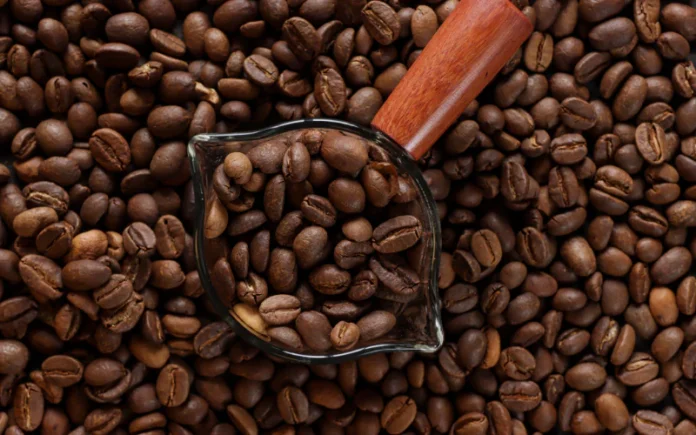Three months ago, I gave up coffee—and my body didn’t take it well. Each morning, when I’d usually sip my espresso, I found myself bargaining: Just one cup? Maybe a small latte later? Instead, I stuck it out—and in return, I got the full spectrum of caffeine withdrawal symptoms: pounding headaches, irritability, sensitivity to noise, and a general sense of fogginess.
Caffeine is in so many foods and drinks—tea, energy drinks, chocolate—that we often forget it’s a psychoactive substance. But the intensity of my withdrawal made me question: Is caffeine as harmless as we think?
Is Caffeine Bad for You? It Depends on the Person
According to a 2017 review, moderate caffeine intake—up to 400 mg per day—is generally safe for most healthy adults. That’s about two to three cups of coffee. But this guideline doesn’t cover vulnerable populations such as people with anxiety, cardiovascular conditions, or genetic predispositions that make them more sensitive to caffeine.
For some, even small doses can lead to sleep disturbances, elevated heart rate, or heightened anxiety. In pregnant individuals, excess caffeine has been linked to fetal development concerns, and experts recommend a lower limit of 200 mg per day.
So, is coffee bad for your health? Not necessarily—but your personal biology plays a big role.
The History of Caffeine and Coffee Addiction
Caffeine’s grip on modern culture runs deep. Coffeehouses helped fuel capitalism and intellectual discourse as far back as the 16th century, while also tying coffee to colonialism and exploitative labor.
Today, over 85% of people consume caffeine daily, often relying on it to get through demanding workdays, all-night study sessions, or intense workouts. This creates a cycle of dependence that few of us challenge.
Health Effects of Caffeine: Risks and Benefits
Despite concerns, caffeine isn’t all bad. Research has shown potential health benefits of caffeine, including reduced risks of:
- Parkinson’s disease
- Alzheimer’s disease
- Type 2 diabetes
- Certain heart conditions
Caffeine is also used in medicine to improve focus, reduce inflammation, and even help premature infants breathe more easily. Migraine medications like Excedrin include caffeine to boost pain relief via vasoconstriction, which may explain the headaches that come with caffeine withdrawal.
But risks remain—especially in heavy users or those with certain medical conditions.
Caffeine Sensitivity: Your Genes Might Be to Blame
Why can some people drink three espressos and feel fine, while others get jittery from green tea? It comes down to caffeine metabolism, which is influenced by genetics.
About 50% of people carry a “slow metabolizer” gene, meaning caffeine lingers in their system longer. This can increase the risk of hypertension, heart palpitations, and anxiety.
On the other hand, fast metabolizers break it down quickly and often report needing more caffeine to feel alert—sometimes unknowingly increasing their dependence.
Caffeine Tolerance and Withdrawal: A Real Addiction?
While caffeine addiction isn’t officially recognized in the DSM-5 as a substance use disorder, caffeine withdrawal is. Tolerance builds over time, requiring higher doses to get the same stimulating effect.
Smokers may metabolize caffeine faster due to enzyme activity, which can lead to higher consumption. And while we’re still learning about caffeine’s interaction with other substances—like cannabis—some animal studies suggest it may impair memory when combined with THC.
What I Learned From Quitting Caffeine
It took me years to face the truth: coffee was making me anxious, restless, and sleep-deprived. Since quitting, I’ve noticed improved sleep, calmer mornings, and a slower—but more intentional—approach to daily tasks.
I’m no longer pushing myself through the day with artificial energy. Instead, I listen to my body, rest when I need to, and accept that my productivity doesn’t have to run on caffeine.
Still, caffeine affects everyone differently. Some people may thrive with moderate consumption. Others, like me, may find more peace without it.
Final Thoughts: Is Caffeine Safe?
The question “Is caffeine bad for you?” doesn’t have a one-size-fits-all answer. While moderate consumption is safe for most, its effects are heavily influenced by genetics, mental health, and lifestyle.
If you’re experiencing sleep issues, anxiety, or heart symptoms and consume caffeine regularly, it might be worth exploring a break. The health effects of quitting caffeine can be profound—but getting through the withdrawal is no small feat.
Whether you’re considering cutting back or just curious about your own sensitivity, the key is listening to your body—and questioning whether your morning cup is serving you or running the show.




